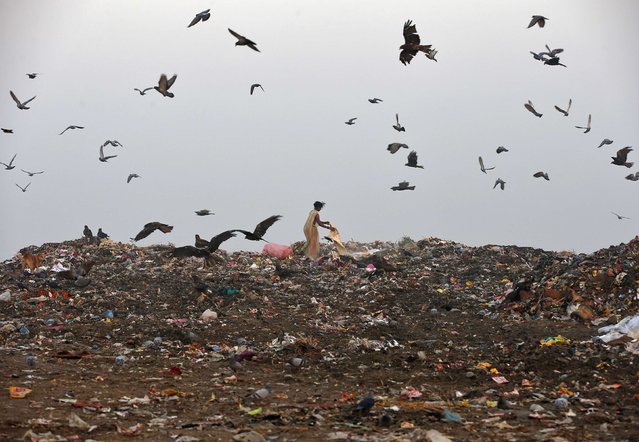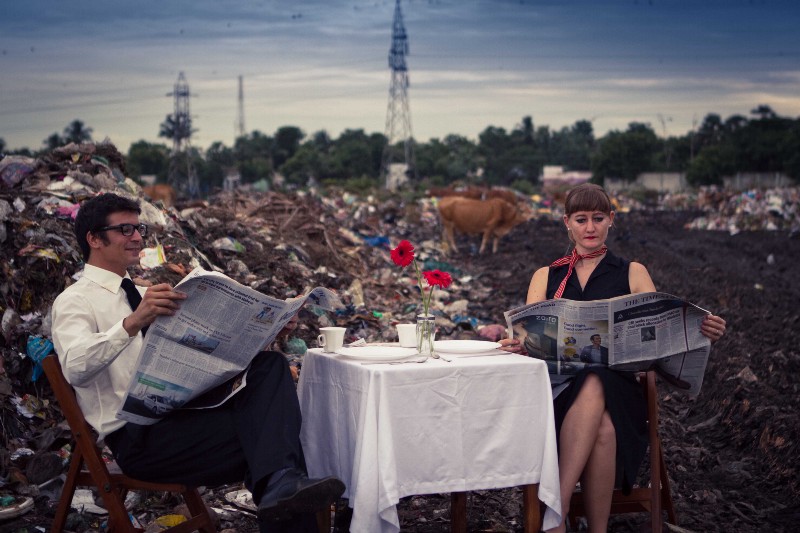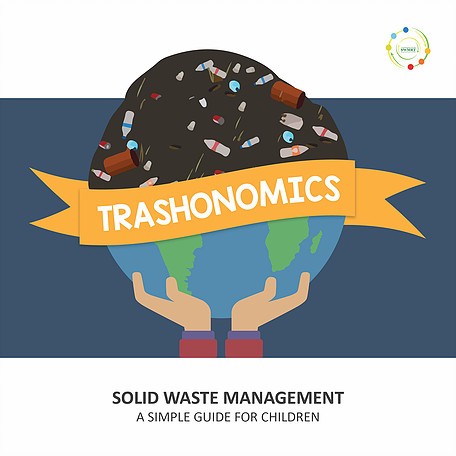Year End Special: A Wish List For Waste In 2017

As part of its year-end special, Eartha asked sustainability professionals working across the green economy to share their hopes and dreams for a better world and the changes they would like to see in 2017.
In the first of a three-part series, Archana Prasad Kashyap, co-founder of 2Bin1Bag and co-author of Trashonomics shares her wishlist for waste for 2017.
1. Trashonomics becomes part of curriculum for all syllabus in schools
The book addresses the issue of Bangalore’s solid waste problem and proposes solutions based on local legislations. It is built around the idea that waste can be turned into a resource if it is properly segregated at source. Trashonomics is designed to be used to supplement the regular school curriculum for Environmental Studies or Social Sciences, help children understand the impacts of their habits, and equip them with the knowledge to make better choices.
2. Subsidies are introduced for waste management solutions
Government subsidies for effective waste management solutions like setting up or purchase of composting units, city compost buy-back schemes etc. encourage positive waste behaviour like waste segregation at source and household level composting which are sustainable waste management alternatives. Such schemes will not only help to keep garbage out of landfills but also help turn city waste into nutritious fertiliser for the soil.
3. Stringent norms for extended producer responsibility
Manufacturers must be mandated to use a certain percentage of recycled material for packaging and even manufacturing their products. Legislative frameworks must be put in place that incentivise packaging industries to move towards a circular economy, thereby driving innovation in eco-friendly materials. Industries (including online retailers) must be mandated and incentivised to take back and reuse their packaging.
4. FMCGs to help manage DWCCs
As an extension of EPR, FMCG companies should be mandated to collaborate with municipalities to set up and manage Dry Waste Collection Centres (DWCCs). FMCGs can play a significant role in procuring and processing recyclable waste from households and commercial establishments and creating sustainable livelihoods for waste pickers and municipal sanitation workers.
5. A clear roadmap for plastic ban implementation
While Karnataka has shown the way in banning and penalising the manufacture and sale of plastics, including carry bags, banners, plates, cups, spoons and flex, the implementation of the ban is currently limited to the seizing and penalising of violators at the retailer and consumer level by the municipality. What we need in 2017 is a roadmap to implement the ban on a war footing. Included should be plans for awareness, notice, and penalties at the manufacturer, distributor, retailer, and consumer levels. A committee must be formed specifically for the plastic ban that will include members from KSPCB, Department of Transportation, BBMP, and technical experts.
6. Eliminate contract system and enable user fee model for C&T
Currently, waste collection and transportation from non-bulk generators is provided and funded by the municipality through the garbage cess. This has two problems:
- This cost is not visible to residents and hence generation and disposal of waste is not seen as a problem
- The contract system where the municipality pays contractors ahead of availing their services leads to corruption in the system. The Waste Collection and Transportation system thus needs an overhaul, preferably moving towards a "Pay As You Throw" model. This model would then possibly include separate contracts for different streams of waste and fees collected based on volume generated.
7. Reduction or removal of VAT on waste processing and management
2017 should see a removal of the 14.5% VAT on organic waste processing solutions. We also hope for a reduction or removal of Service Tax of 14.5% on waste management services.
Archana is co-founder of 2Bin1Bag and a member of the Solid Waste Management Round Table, a volunteer group working on decentralised and inclusive waste management in Bangalore. She is also co-author of the book Trashonomics.





